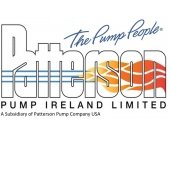Ultrasonic flowmeters optimise pump station operation
Ultrasonic clamp-on flowmeters can operate wherever contact with the fluid to be measured is not feasible. They are not subject to the same wear and tear and the resulting loss of accuracy of traditional wetted meters, and they can undertake a range of data logging tasks, delivering the baseline and load profile evidence necessary to maximise pump station efficiency and help to reduce energy use.
A leading metropolitan water authority in Sydney, Australia, was pumping water from a wet well into a common manifold, where wastewater was then diverted to various pipelines for further treatment or an ocean outfall sewer. But because no flowmeters monitored the pipelines after the manifold, there was no way to optimise the duty and standby pumps so that they would operate in the most efficient configuration. It’s impossible to manage what isn’t measured, and better management of such an energy intensive process is needed to deliver maximum pump station operation.
High risk and expensive, interrupting the process at a pumping station that serves such a large population was not an option. The plant’s process engineers needed an alternative way to equip a flow measuring device, so FLEXIM undertook an on-site trial to demonstrate the reliability and stability of ultrasonic clamp-on technology and build confidence in this measuring method. Despite spiral welded steel pipes presenting a challenge in mounting the transducers, on-site tests showed that readings aligned to expected pump flow curves, but they also detected an unexplained reverse flow. Further investigations by engineers found that a faulty valve in the manifold caused a previously unknown flow diversion.
With confidence in the ultrasonic flowmeter’s capabilities growing, a permanent system was quickly installed, with no shutdown of the pumping station necessary. The duty and cycle pump strategy is now fully optimised, and energy consumption can be reduced.
Back to Latest News





2.jpg&w=170&h=170)


1.png&w=170&h=170)

3.png&w=170&h=170)

